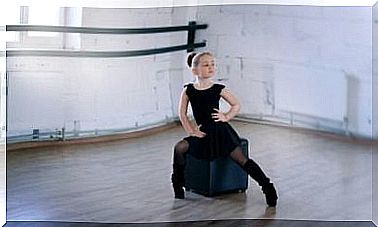Early Risers Or Night Owls, What Differences?

Some of us may wake up before dawn and feel fresh and ready for the day. For many others, getting up early is an effort, and regaining clarity takes time. These differences are related to our chronotype and do not apply only to adults. There are, in fact, early risers or night owls teenagers, with different characteristics and needs.
Between school commitments and our work needs, children are forced to follow strict schedules and programs. We insist that they follow a specific routine and sometimes label them as lazy when they can’t stick to it. Part of this behavior, however, is related to physiological factors.
Early risers and night owls: two chronotypes
The chronotype is the predisposition of each of us to experience peaks of activity and the need for rest at certain times of the day. It is based on the synchronization of the circadian rhythm, the 24-hour physiological cycle that regulates our body.
This energy cycle is controlled by melatonin, a sleep-inducing hormone that is released in the dark. This hormone therefore decides when we are more lucid or more sleepy. The problem is, we don’t all make melatonin at the same time.

Morning chronotype
Boys who fall into this category release melatonin around midnight. For this reason they need to go to sleep early and get out of bed without difficulty, even early in the morning.
The most productive hours are, for them, the morning and their energy decreases as the hours go by. Finally, in the evening, they are tired and fall asleep immediately. They naturally need to sleep between 10pm and 6am.
Evening chronotype
In contrast, in adolescent night owls, the melatonin production peak is shifted further, towards six in the morning. For this reason they get out of bed sleepy and dull and need a little more time to fuel.
In addition, their energy increases progressively during the day, reaching maximum performance in the evening. No wonder, then, that they find it more difficult to sleep in the early evening. A natural sleep pattern for a person with this chronotype would be between 3 and 11 in the morning.
In reality, only 50% of the population falls into one of these two pure chronotypes. The other half shares an intermediate chronotype.
Adolescents and a tendency to be late
Despite the personal physiological predisposition, it is shown that during adolescence there is a general trend towards nightlife. From the age of 12-13, young people begin to feel more active in the second half of the day and more tired in the morning.

We know that the company is designed for early risers. School hours oblige young people to get up early and pay off in the morning. This, however, is in contrast to their physiological tendency to be active in the latter part of the day.
- They wake up sleepy, not very lucid and are forced to render (and also to be evaluated) in moments that are less optimal for them.
- They don’t fall asleep easily in the evening because their energy level is still high. However, they have to get up early and are usually very late in sleep.
- They make up for late sleep over the weekend by sleeping for many hours. However, this prevents them from establishing a regular sleep-wake pattern and affects weekly performance.
All these factors put adolescents with an evening chronotype at a disadvantage. Classmates with a morning chronotype, on the other hand, attend lessons and are evaluated in the hours of maximum performance.
Early risers and night owls: recognize and respect them
In short, we must learn to recognize the chronotype of our children to better understand their needs. If the adolescent stays up late or sleeps well in the morning, we must consider that this is a normal process related to the adolescent phase. Also, if he tells us that he studies better in the evening, trust him. It probably belongs to an evening chronotype.
We certainly cannot change the timetables imposed by our company. However, we can try to exploit, as much as possible, our moments of greater lucidity to be more productive.









